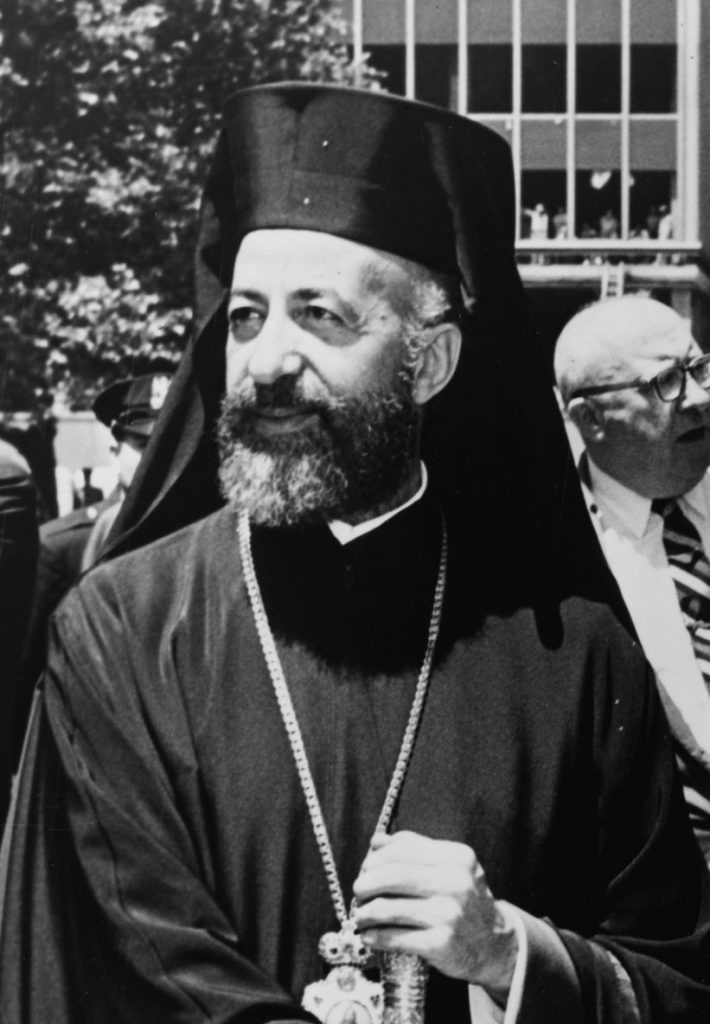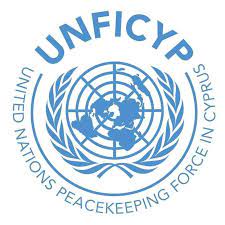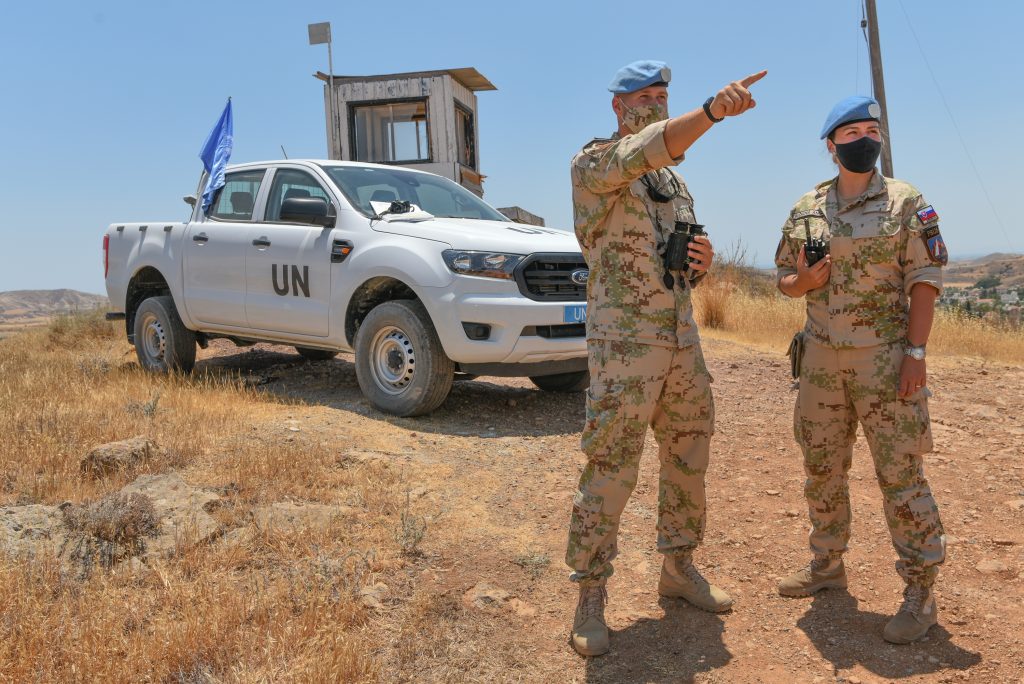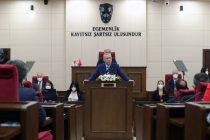Monday, 4 March 2024 will mark 60 years since the United Nations (UN) Security Council passed Resolution 186 that green-lighted the presence of UN peacekeepers in Cyprus and inadvertently created the current status quo on the island, where one side is recognised as a ‘government’ and the other struggles to achieve parity in line with its constitutional rights, as the world treats it as a “community”, in line with the words used in this unfortunate Resolution.
That the UN remains in Cyprus to this day and that it has failed to broker a permanent settlement between the Turkish and Greek Cypriots should merit a closer review of how this Resolution came to be and its negative impact on current events on the island.
T-VINE talked to Ergün Olgun, a former Turkish Cypriot Chief Negotiator, for his take about this historic milestone.
Backdrop to UN Resolution 186, 4 March 1964
First, a step back to the months preceding UN Resolution 186. The international community were keen to help end the violence that had erupted in December 1963, when Greek Cypriots had unlawfully seized control of the Republic of Cyprus (RoC) at the expense of their government partners, the Turkish Cypriots.
Cyprus had gained independence from Britain three years earlier. The new state’s constitution along with the 1960 Treaties that had established the RoC reflected the delicate balance that had been struck between the Greek Cypriot community and the numerically smaller Turkish Cypriots, who were to share power in a bi-communal partnership government. The RoC would have a Greek Cypriot president and Turkish Cypriot vice-president, with both enjoying veto powers.
The RoC’s first president, Archbishop Makarios, was dissatisfied with this arrangement. Like the vast majority of Greek Cypriots, Makarios wanted to turn Cyprus into a Hellenic state that was tied to Greece (’Enosis’). Having got rid of the British, only the Turkish Cypriots now stood in their way.
The Archbishop made his intentions very clear in a sermon he gave on 4 September 1962: “Unless the small Turkish community, forming part of the Turkish race, which has been the terrible enemy of Hellenism, is expelled, the duty of the heroes of EOKA can never be considered terminated.”
Crucial to Makarios’ plans was EOKA (National Organisation of Greek Cypriot Fighters). The terror group had waged a bloody war against the British from 1955 to 1958 to end colonial rule and achieve Enosis. Makarios turned to EOKA again, appointing the group’s key personnel to senior positions in the RoC government, including Polykarpos Yorgadjis, who became Minister of the Interior. The former EOKA gunman had once proclaimed that “there is no place in Cyprus for anyone who is not Greek, who does not think Greek and who does not constantly feel Greek.”
Makarios’s next step was to create a political crisis by seeking to introduce in November 1963 a raft of constitutional changes, known as the 13 Amendments, that would remove the political equality of the Turkish Cypriots. Not surprisingly, this proposal was totally rejected by RoC Vice-President Dr Fazıl Küçük and his fellow Turkish Cypriots.

The Greek Cypriot leader, aided by Yorgadjis, then put in motion a secret plot known as the Akritas Plan, which would violently force through these constitutional changes and, if necessary, declare Enosis before any outside power could intervene.
Although some Turkish Cypriots had anticipated this, most were taken unawares by the sheer brute force used against them in what became known as ‘Bloody Christmas’. Hundreds were murdered or went missing during this 10-day killing spree, whilst one in four Turkish Cypriots were displaced as Turkish neighbourhoods and villages across the island were attacked. While some Turkish Cypriots tried to fight back, they faced an impossible mission against the better armed Greek Cypriots, who quickly had total control of the RoC.
As the world became aware of the events in Cyprus early in 1964, one of the major fears for the West in particular was how this conflict could spread, drawing in the two communities’ motherlands and NATO allies, Turkiye and Greece. With the Cold War taking shape globally, the UK and US did not want a new front to open up in the Eastern Mediterranean.
It was this backdrop that led to the international community’s intervention in Cyprus. The arrival of UN troops on the island in 1964 did not end the violence or restore the constitutional rights of Turkish Cypriots, who continued to live under oppressive conditions and under siege in tiny enclaves across the island for another decade until Turkiye militarily intervened in July 1974 in response to a Greece-backed coup.
In a move designed to permanently end the bloodshed, the Turkish army formally divided the island into two ethnic zones, a Turkish north and a Greek south, a situation which continues to prevail.
Sixty years on from their arrival in Cyprus, UN ‘peacekeeping’ troops remain on the island and the Cyprus Dispute is no nearer being resolved. We ask Mr Olgun, who was one of the architects of the UN’s Annan Plan of 2004, about this state of affairs.

Q. Given the way UN Resolution 186 has shaped the Cyprus Issue, calling one side a ‘government’ and the other a ‘community’, is it possible to resolve the long-running political dispute while this resolution remains intact?
EO: Prof. Oliver P. Richmond in his well-researched book “Mediating in Cyprus” points out that the Soviet Union was quick to capitalize on the confusion in Cyprus in 1963, making it possible for Greek Cypriot leader Archbishop Makarios to deliberately use the Soviet Union to blackmail the Western alliance into accepting the Greek Cypriot fait accompli of December 1963, when it seized control of the Republic of Cyprus.
Richmond underlines that behind the scenes at the UN Security Council in March 1964, it was clear that the United States and the United Kingdom were motivated by a need to stop the fighting quickly to preserve the eastern flank of NATO and to negate the level of Soviet involvement. This had a decisive impact on the content of UN Resolution 186, which was a hasty response because its principal authors (the UK and US) chose to ignore the legal aspects of the Cyprus issue by giving higher priority to the international ramifications of an escalation, which were deemed to be more serious by Western powers than the constitutional aspects.
British soldier replaces Union Jack flag image on an armoured vehicle in Cyprus with UN logo, 31 March 1964
The wording used in UN Resolution 186 resulted in the denial of the equal rights and international status of the Turkish Cypriot Side, while strengthening the hand of the Greek Cypriots, leading to a perpetual deadlock in the negotiation process in which, as a result of the imbalance created between the two co-founders of the 1960 partnership Republic of Cyprus, the Greek Cypriot Side expects the submission of the Turkish Cypriot Side without making any concessions themselves.
The conclusion that can be drawn from events in Cyprus, and studies like Prof. Richmond’s, is that the bi-communal partnership Republic of Cyprus was the victim of a blackmail during the Cold War when, with the submission of the Americans and British, the UN succumbed to the Soviet Union backed Greek Cypriot/Greek threat to turn the island into the Cuba of the Mediterranean if the Greek Cypriot-usurped Government of Cyprus was not treated as the legitimate government of the whole island.
Through Resolution 186, the Security Council thus rewarded the aggressor and punished the victim.
From the very beginning the Turkish Cypriot leadership has been objecting to this illegality and to the Greek Cypriot-hijacked “Government of Cyprus” which, amongst other things, grants them the right to unilaterally give consent to the presence and ongoing operations of the UN Peacekeeping Forces in Cyprus (UNFICYP).
It should be noted that on 7 March 1964, the Turkish Cypriot Vice-President of Cyprus, Dr Fazıl Küçük, sent a telegram to the President of the UN Security Council in which he pointed out “that under Cyprus Constitution, the Turkish community through its Vice-President has equal rights with the Greek community, particularly in matters relating to foreign affairs, defence and security … In view of this, it is imperative that in implementing paragraphs 4 and 7 of resolution 186 both President and Vice-President are consulted and/or their consent obtained.” Sadly, no one listened and this injustice is continuing, resulting in the ongoing Cyprus Issue.
Putting aside the illegitimacy of Resolution 186, which disregarded the terms of Cyprus’ Constitution and the 1960 Treaties that established the Republic of Cyprus, this UN decision has created insurmountable political complications in reaching an equality-based settlement between the two sides.
Moreover, UN Resolution 186 has caused complications for the functioning of UNFICYP itself by ignoring the UN’s own principles of peacekeeping, namely that it needs the consent of the local parties and impartiality.
These are supposed to be the bedrock principles of UN peacekeeping, yet both of these principles are violated in Cyprus because the UN still refrains from engaging with the Turkish Cypriot Side on the same terms as it does with the Greek Cypriots. The UN does not seek our consent for UNFICYP’s presence on the island and refrains from signing an agreement with us setting out the modalities for the operation of UNFICYP in North Cyprus.
UN Mobile Force Reserve peacekeepers train in Buffer Zone in Nicosia, with Turkish Cypriot flags on the mountains in the background, 7 Feb. 2014
Furthermore, because the Greek side is benefitting from the legitimacy and comfort zone provided to it by Security Council Resolution 186, they happily cover one third of the running costs of UNFICYP, while the Government of Greece makes a further annual donation of $6.5 million. These contributions amount to about 45% of the annual overall cost of UNFICYP, raising serious issues of conflict of interest and impartiality for the UN.
Additionally, we see the glaring paradox between the mandates of the peacekeeping forces on the one hand, and the good offices mission of the UN in Cyprus, which seeks a permanent negotiated settlement, on the other. Despite the latter operating on an equal footing, as long as the peacekeeping mission disregards the requirements of the inherent equality of the two Sides, the good offices mission of the UN Secretary-General cannot succeed.
UNFICYP’s mandate simply continues to give sustenance to the hijacked “Republic of Cyprus” and thus perpetuates the current unacceptable status quo on the island. Under these conditions, there is no way that the UN can contribute to an inherent equality-based settlement in Cyprus so long as it continues to operate under Security Council Resolution 186.

If the international community is sincere about political equality being at the heart of a negotiated settlement in Cyprus, there is an urgent need for the UN to review its position and respect, in practical terms, the fact that the two Sides in Cyprus are inherent equals; that there are two equally legitimate polities in Cyprus on two distinct territories; that neither side may claim or exercise authority, jurisdiction or sovereignty over the other; and that, to start with, the UN needs to respect its own bedrock principles of impartiality and the need for the consent of the parties to the conflict for both its peacekeeping and peace-making missions in Cyprus.
Q. Do you regard the UN’s presence in Cyprus a help or a hindrance to resolving the conflict? After 60 years, is it time for the UN to leave Cyprus?
EO: For the reasons I stated above, I do not think that the UN can help solve the Cyprus Issue. Because of Security Council Resolution 186, the UN has become an obstacle for the settlement of the Cyprus issue since it has helped destroy the balance of power equilibrium that was delicately established by the 1960 Agreements, and which are vital for any future equality-based settlement.
Moreover, as Turkish Cypriots routinely see and experience, UNFICYP act like they are an agent of the Greek Cypriot Side, as we saw with their repeated failure to allow the construction of the vital Pile Road so Turkish Cypriot villagers resident in the area could avoid the busy British checkpoint at Beyarmudu, that doubles travel time. The Turkish Cypriot government had made multiple attempts to get this project approved for over twenty years, which UNFICYP never permitted yet during the same period it has approved numerous Greek Cypriot construction projects in the Buffer Zone.
Perhaps most significantly, UNFICYP is incapable of fulfilling its principal purpose, to keep the peace in Cyprus. The absence of violence on the island since 1974 – some ten years after UN troops first arrived in Cyprus – is because of the deterrence provided by the Turkish Peace Force on the island.
Greek Cypriot leader Nikos Christodoulides, left, TRNC President Ersin Tatar, right, and UN Secretary General’s Special Representative in Cyprus, Colin Stewart, after a meeting in the UN buffer zone in Nicosia, 23 Feb. 2023
Having failed in its missions to bring about stability, cooperation and settlement for sixty years, the withdrawal of the so-called UN peacekeeping mission could address the imbalance brought about by Resolution 186 and at the same time strengthen the hand of the Secretary-General and his good offices mission.
Q. How do you view the ongoing international isolation of Turkish Cypriots?
EO: Since December 1963, the Turkish Cypriot people have been denied their constitutionally enshrined political rights and subjected to inhuman restrictions and isolation.
In his report of 28 May 2004 to the Security Council, Secretary-General Kofi Annan underlined that the Turkish Cypriot vote for reunification in the referendum of 2004 has undone whatever rationale might have existed for pressuring and isolating them.
Former UN Secretary-General Kofi Annan
The Secretary-General added that “In this context and for that purpose… I would hope they (meaning members of the Security Council) can give a strong lead to all States to cooperate both bilaterally and in international bodies to eliminate unnecessary restrictions and barriers that have the effect of isolating the Turkish Cypriots and impeding their development, deeming such a move as consistent with Security Council resolutions 541 (1983) and 550 (1984).”
Sadly, despite the call of the Secretary-General and promises made to the Turkish Cypriot Side, the inhuman restrictions imposed on Turkish Cypriots are continuing.
Q. Why haven’t TRNC Presidents and governments been more successful in trying to break the embargoes on Turkish Cypriots, such as in the area of sports, or direct flights or trade with the EU?
EO: We first need to note that there is no internationally sanctioned embargo imposed on the Turkish Cypriot people. The restrictions and isolation imposed on Turkish Cypriots is instigated, cherished and maintained by the Greek Cypriot Side, largely made more effective through the exploitation of their controversial membership of the European Union in 2004.

I can think of two key reasons why TRNC authorities have not been more successful in breaking these unfair and unjustified restrictions. The first reason is that the Greek Cypriot Side has dedicated more human and financial resources and energy to keep Turkish Cypriots under isolation and their lives restricted in order to realise their ultimate objective of marginalising the Turkish Cypriot Side and dominating the whole island.
The second reason is that the Turkish Cypriot Side has failed to allocate the needed human and material resources, including effective legal and political challenges, against this injustice.
Main photo, top, of UNFICYP peacekeepers patrolling the buffer zone, June 2021. Photo © Own work, licence CC BY-SA 4.0 via Commons/Wikimedia





